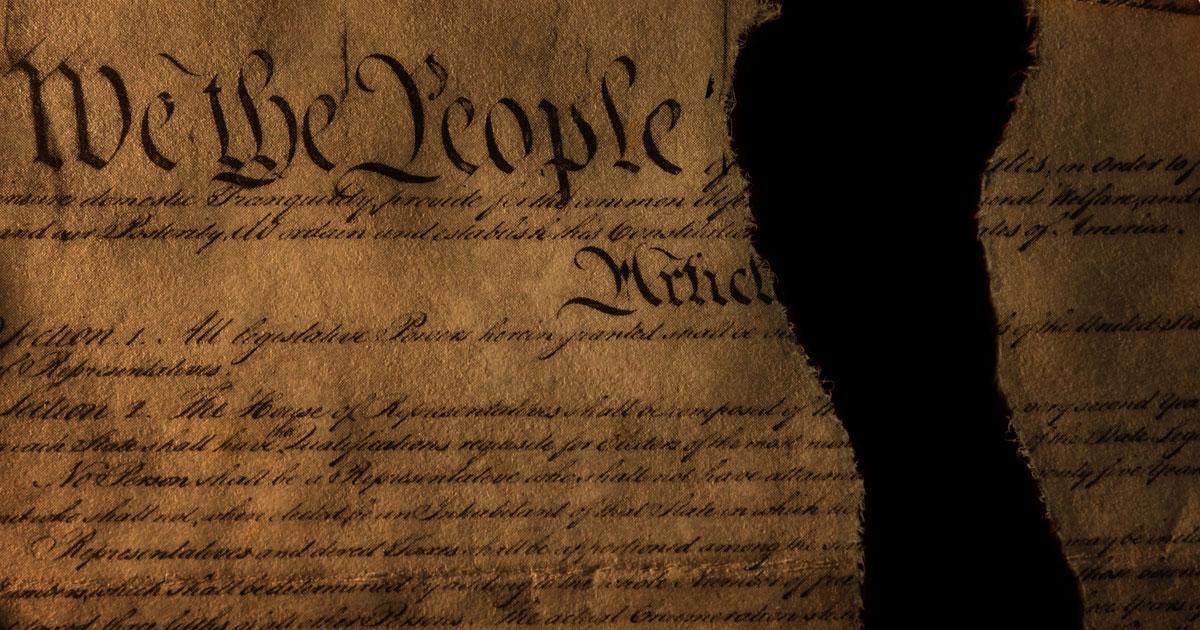
Spooner: We Didn’t Consent to the Constitution
The number who actually consented to the Constitution of the United States, at the first, was very small. Considered as the act of the whole people, the adoption of the Constitution was the merest farce and imposture, binding upon nobody.
The women, children, and blacks, of course, were not asked to give their consent. In addition to this, there were, in nearly or quite all the States, property qualifications that excluded probably one half, two thirds, or perhaps even three fourths, of the white male adults from the right of suffrage. And of those who were allowed that right, we know not how many exercised it.
Furthermore, those who originally agreed to the Constitution, could thereby bind nobody that should come after them. They could contract for nobody but themselves. They had no more natural right or power to make political contracts, binding upon succeeding generations, than they had to make marriage or business contracts binding upon them.
Still further. Even those who actually voted for the adoption of the Constitution, did not pledge their faith for any specific time; since no specific time was named, in the Constitution, during which the association should continue. It was, therefore, merely an association during pleasure; even as between the original parties to it. Still less, if possible, has it been any thing more than a merely voluntary association, during pleasure, between the succeeding generations, who have never gone through, as their fathers did, with so much even as any outward formality of adopting it, or of pledging their faith to support it. Such portions of them as pleased, and as the States permitted to vote, have only done enough, by voting and paying taxes, (and unlawfully and tyrannically extorting taxes from others,) to keep the government in operation for the time being. And this, in the view of the Constitution, they have done voluntarily, and because it was for their interest, or pleasure, and not because they were under any pledge or obligation to do it. Any one man, or any number of men, have had a perfect right, at any time, to refuse his or their further support; and nobody could rightfully object to his or their withdrawal.
There is no escape from these conclusions, if we say that the adoption of the Constitution was the act of the people, as individuals, and not of the States, as States. On the other hand, if we say that the adoption was the act of the States, as States, it necessarily follows that they had the right to secede at pleasure, inasmuch as they engaged for no specific time.
The consent, therefore, that has been given, whether by individuals, or by the States, has been, at most, only a consent for the time being; not an engagement for the future. In truth, in the case of individuals, their actual voting is not to be taken as proof of consent, even for the time being. On the contrary, it is to be considered that, without his consent having ever been asked, a man finds himself environed by a government that he cannot resist; a government that forces him to pay money, render service, and forego the exercise of many of his natural rights, under peril of weighty punishments. He sees, too, that other men practise this tyranny over him by the use of the ballot. He sees further that, if he will but use the ballot himself, he has some chance of relieving himself from this tyranny of others, by subjecting them to his own. In short, he finds himself, without his consent, so situated that, if he use the ballot, he may become a master; if he does not use it, he must become a slave. And he has no other alternative than these two. In self-defence, he attempts the former. His case is analogous to that of a man who has been forced into battle, where he must either kill others, or be killed himself. Because, to save his own life in battle, a man attempts to take the lives of his opponents, it is not to be inferred that the battle is one of his own choosing. Neither in contests with the ballot—which is a mere substitute for a bullet—because, as his only chance of self-preservation, a man uses a ballot, is it to be inferred that the contest is one into which he voluntarily entered; that he voluntarily set up all his own natural rights, as a stake against those of others, to be lost or won by the mere power of numbers. On the contrary, it is to be considered that, in an exigency, into which he had been forced by others, and in which no other means of self-defence offered, he, as a matter of necessity, used the only one that was left to him.
Doubtless the most miserable of men, under the most oppressive government in the world, if allowed the ballot, would use it, if they could see any chance of thereby ameliorating their condition. But it would not therefore be a legitimate inference that the government itself, that crushes them, was one which they had voluntarily set up, or ever consented to.
Therefore a man’s voting under the Constitution of the United States, is not to be taken as evidence that he ever freely assented to the Constitution, even for the time being. Consequently we have no proof that any very large portion, even of the actual voters of the United States, ever really and voluntarily consented to the Constitution, even for the time being. Nor can we ever have such proof, until every man is left perfectly free to consent, or not, without thereby subjecting himself or his property to injury or trespass from others.
This article is a selection from No Treason, no. 2, The Constitution (1867).




